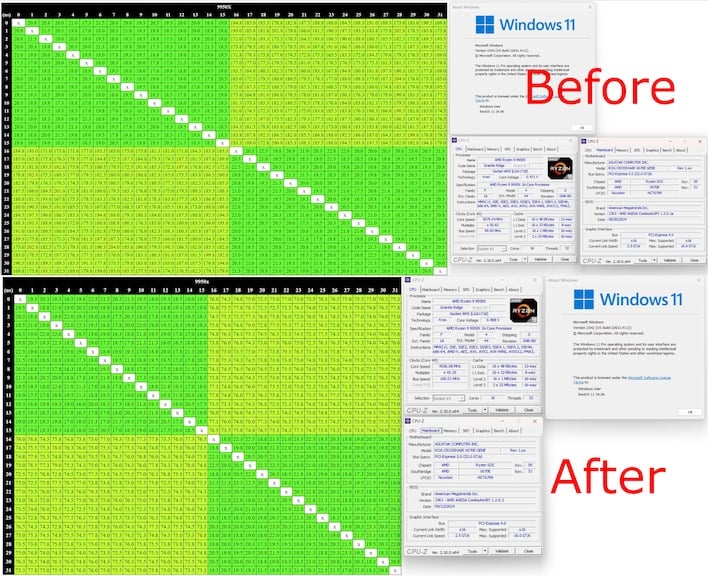Ryzen 9000 Zen 5 Inter-Core Latency Bug Fixed With This New AMD Firmware
This is a well-known and understood phenomenon, but hardware enthusiasts were surprised to learn that AMD's new many-core Zen 5 processors, the Ryzen 9 9900X and Ryzen 9 9950X, had nearly triple the inter-core latency of its previous-generation Zen 4 processors. Some folks even went as far as to blame the somewhat lackluster performance uplift of Ryzen 9000 (over Ryzen 7000) on this quirk.
Well, as it happens, AMD has figured out the cause of this curiosity and completely resolved it in a microcode update. The first BIOS updates are rolling out with AGESA version 1.2.0.2. AGESA stands for "AMD Generic Encapsulated Software Architecture," and AGESA updates actually modify the behavior of the processor at a very low level.
AMD hasn't said a word about it, but independent testing (by domdtxdissar on the Overclock.net forums) of ComboAM5Pi 1.2.0.2 shows radically reduced cross-CCD core-to-core latency—approximately 2.4x less. Using the CapframeX core-to-core latency tool with an ASUS motherboard and a Ryzen 9 9950X CPU, the Norwegian enthusiast was able to clearly demonstrate the benefits of the new microcode.

So that's great, right? Zen 5's performance woes resolved, and the new AMD CPUs should be much faster now? Well, not exactly. It turns out the practical effect of the high core-to-core latency was really pretty minimal, and while the new microcode definitely helps performance, the actual benefit seems to be pretty small. A user in the thread notes that he "picked up like 1.2K or something points in R23", which sounds very impressive until you realize that a typical Cinebench R23 score for the Ryzen 9 9950X is on the order of 45,000 points.



